Irish Setters are a striking breed, renowned for their lively personalities and distinctive mahogany coats. These dogs are characterized by their boundless energy, affectionate nature, and eagerness to please, which makes them exceptional companions. Their intelligence allows them to quickly grasp new commands, making them ideal candidates for Irish Setter training with the right approach. These dogs are particularly responsive to positive reinforcement, such as treats, praise, and playtime. Training your Irish Setter effectively benefits both you and your dog, fostering a fun and strong bond through improved communication and behavior.
***Disclosure: This post may contain affiliate links, which means we may receive a commission, at no extra cost to you, if you make a purchase through a link.***
Table of Contents
Understanding Irish Setters
As a popular breed among dog owners, Irish Setters are often chosen for their versatility and gentle temperament. Pet owners of Irish Setters face unique challenges and responsibilities, particularly in training and managing their high energy levels. Originally bred as hunting dogs, they are known for their strong prey drive and their ability to work in the field. Typically medium-sized, Irish Setters have a sleek build, with males weighing between 60 to 70 pounds. Their high energy levels mean they thrive in environments where they can move freely, so owners must be prepared to provide plenty of physical and mental stimulation.
Preparing for Training
Training an Irish Setter should begin early, ideally between 8 and 11 weeks old, as this is when they are most impressionable and eager to learn. Starting at a young age allows you to shape their behavior and build a foundation of positive habits through Irish setter training. During this time, it is essential to establish clear boundaries and consistently reinforce good behavior, which helps to build their confidence and ensures they understand and respect the structure in the household.
To get the dog to understand commands, use positive reinforcement techniques that reward good behavior.
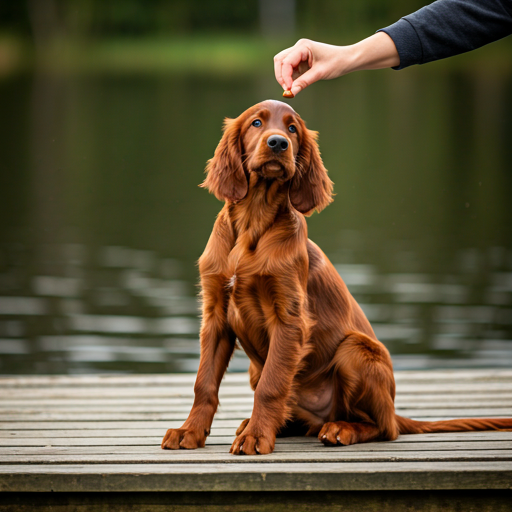
Positive reinforcement training methods, such as reward-based training, work best with Irish Setter training. These dogs respond exceptionally well to treats and praise, making the process of training both enjoyable and effective. Socialization is also a key part of their early Irish Setter training, as it helps them grow accustomed to various environments, people, and other animals. This reduces the likelihood of fear-based behavioral issues as they mature. If you feel uncertain about training, enrolling in puppy classes can be a valuable resource, especially when it comes to basic obedience and housebreaking.
Choosing the Right Training Method
Choosing the right training method for your Irish Setter training is crucial to developing a well-behaved and obedient dog. With the right approach, you can overcome common behavioral problems and build a strong bond with your pet. Here are some key considerations to help you choose the right training method for your Irish Setter:
Positive Reinforcement Training: Irish Setters are highly intelligent and respond well to positive reinforcement training methods. This approach focuses on rewarding good behavior with treats, praise, and affection, rather than punishing bad behavior. Positive Irish Setter training helps build trust and encourages your dog to repeat desirable behaviors.
Food-Motivated Training: Irish Setters are food-motivated dogs, which means they love treats and will work hard to earn them. Use high-quality dog food and your dog’s favorite toy to motivate them during training sessions. This makes learning new commands and behaviors a fun and rewarding experience for your dog.
Body Language: Irish Setters are highly attuned to body language, so it’s essential to use positive and calm body language when training. Avoid physical punishment or negative reinforcement, as this can lead to fear and aggression. Instead, use gestures and a calm tone to communicate with your dog effectively.
Start Training Early: Irish Setter training for puppies is essential, as they are highly energetic and curious. It’s important to start training early to establish good habits and prevent unwanted behaviors. Begin Irish Setter training as soon as possible, ideally from 8-10 weeks old. Early training helps set the foundation for a well-behaved adult dog.
Consistency and Patience: Irish Setters can be strong-willed and independent, so consistency and patience are key when training. Set clear boundaries and rules, and be patient with your dog as they learn and grow. Consistent training sessions help reinforce good behavior and make learning new commands easier.
Socialization: Irish Setters are highly social dogs and require regular socialization to prevent anxiety and fear-based behaviors. Socialize your dog with people, other dogs, and new environments to help them become confident and calm. Regular socialization helps your dog adapt to different situations and reduces the likelihood of behavioral issues.
Training Classes: Consider enrolling your Irish Setter in training classes, especially if you’re a new dog owner. Training classes provide a structured environment for your dog to learn and socialize, and you’ll receive guidance and support from experienced trainers. These classes can be particularly beneficial for addressing specific training challenges and improving your dog’s overall behavior.
Adult Dog Training: If you’ve adopted an adult Irish Setter, don’t worry – it’s never too late to start training. Adult dogs can learn new behaviors and habits with patience, consistency, and positive reinforcement. Tailor your training approach to suit your dog’s individual needs and build on their existing skills.
By considering these factors and choosing the right training method for your Irish Setter, you can develop a well-behaved and obedient dog that brings joy and companionship to your life.
Basic Obedience and Housebreaking
Irish Setter training is essential for these energetic dogs to learn good manners. Using a favorite toy during Irish Setter training can help manage excitable behavior by redirecting their attention and reinforcing positive actions. Without regular guidance, they may develop undesirable behaviors such as jumping, excessive barking, or pulling on the leash. To address this, training should include basic obedience commands such as “sit,” “stay,” and “come,” which provide a foundation for more advanced commands later on. Be patient and consistent—Irish Setters tend to thrive in environments where routines are maintained, and commands are reinforced with kindness and patience.
Housebreaking an red setter can be a challenge with this breed due to their high energy levels and strong curiosity. Crate training is an effective method for teaching your dog where it is appropriate to go and helping with separation anxiety. By offering a den-like environment, the crate becomes a safe space for your Irish Setter while also promoting housebreaking consistency. Additionally, regular outdoor trips are essential for preventing accidents in the home. Remember, some Irish Setters may take longer to housebreak, so consistency and positive reinforcement are vital.
Addressing Behavioral Issues
Irish Setter training is crucial, as these high-energy dogs can develop certain behavioral issues if not properly trained and mentally stimulated. Developing an obedient Irish Setter requires addressing two common problems that owners encounter: excessive barking and digging, often caused by boredom or separation anxiety. These behaviors can become ingrained if not addressed early on, so it’s essential to act swiftly with effective Irish Setter training.
The best way to deal with these issues is through positive reinforcement, rather than resorting to punishment. Redirect your Irish Setter’s attention to a more appropriate activity, such as playing with a toy or participating in an Irish Setter training session. If these behaviors persist despite your efforts, it may be helpful to consult a professional dog trainer who can provide more tailored guidance and help resolve underlying issues to keep training up. Remember, training requires patience and consistency, and addressing negative behaviors early prevents long-term challenges.

Exercise and Physical Activity
As one of the most active dog breeds, Irish Setters require ample physical activity to remain healthy and happy. They have an innate need to run, play, and explore, so regular exercise is non-negotiable. Without sufficient physical stimulation and proper Irish Setter training, they may resort to undesirable behaviors like chewing, digging, or excessive barking.
Daily exercise should include at least 30 minutes of running or playtime, but this can vary depending on the individual dog’s age and health. Engaging in dog sports, such as agility training or obedience competitions, or play sessions is an excellent way to meet both their physical and mental needs. These activities provide mental stimulation while also fostering a deeper bond between you and your dog. Allowing your Irish Setter to explore different environments will also help them burn off excess energy and build their confidence.
Advanced Positive Training Techniques
Irish Setters possess an impressive degree of intelligence, making them ideal candidates for advanced Irish Setter training. Whether you’re interested in agility courses, obedience competitions, or other forms of dog sports, Irish Setters can excel with the right guidance. Building on basic obedience commands, you can teach your dog more complex behaviors, such as retrieving objects or navigating agility courses.
Advanced Irish Setter training requires more time, effort, and patience. It’s important to continue using positive reinforcement, as Irish Setters respond best to methods that build on their desire to please. Enrolling your pup in specialized training classes can help you work through more intricate behaviors and enhance your dog’s overall skill set. Remember, advanced training is a gradual process that demands consistent practice and commitment.

Nutrition and Health
While Irish Setters are generally healthy dogs, they may be prone to certain health conditions, such as hip dysplasia or skin issues. Maintaining their overall health involves providing a well-balanced diet that supports their energetic lifestyle. Ensuring proper nutrition is key, and meals should be rich in essential nutrients, such as protein, vitamins, and minerals, to support their muscle development and immune system. Additionally, regular Irish Setter training can help keep them physically active and maintain their overall well-being.
Regular brushing is important for managing their long, silky coat, as it reduces shedding and prevents tangles. This is particularly important during shedding seasons, as Irish Setters can shed heavily at certain times of the year. Additionally, routine veterinary check-ups are crucial to detect potential serious health issues or problems early and ensure your dog’s well-being throughout their life.
Training for Hunting and Working Roles
Irish Setters have a rich history as hunting dogs, and they retain many of the traits that made them so effective in the field. If you plan to train your Irish Setter for a hunting or working role, you’ll need to focus on specialized training techniques. These will build on basic obedience commands while introducing behaviors such as scent tracking, pointing, and retrieving.
Positive reinforcement remains the cornerstone of this training, as these dogs respond best to rewards and praise. Specialized training classes can offer valuable instruction, especially for children or those new to hunting or working dog training. Whether your Irish Setter is working in the field or simply enjoying a family hunt, the process of training them for these roles should be approached with patience, consistency, and dedication.
Socialization and Community
Irish Setters are sociable dogs by nature, and their friendly disposition means they enjoy interacting with other dogs and people. However, to prevent potential behavioral issues like fear or aggression, regular socialization and Irish Setter training are essential. Introducing your Irish Setter to new experiences, people, and environments helps them become well-adjusted adults who are comfortable in different situations.

Socialization should begin early in your dog’s life and continue throughout their development. Enrolling in dog sports, training classes, or puppy socialization groups offers an excellent opportunity for your Irish Setter to meet other dogs and learn appropriate behavior in different settings. Consistency is key in this process, as each new interaction helps you watch them grow more confident and balanced.
Creating a Training Plan
When training an Irish Setter, a well-structured plan is essential for success. Consider your dog’s age, health, and individual personality when developing a training schedule. Setting clear goals and objectives ensures you stay on track, while a consistent routine helps reinforce good behavior. Be prepared to adjust your plan as your dog matures, as their needs and abilities will evolve over time.
Incorporating a mix of basic obedience, advanced training, and socialization into your plan will help your Irish Setter become a well-rounded and obedient dog. Remember, training is an ongoing process that requires patience and consistency. With a clear game plan in place, you can foster a positive relationship with your dog while setting them up for success.
Overcoming Training Challenges
As with any breed, Irish Setters can present training challenges, particularly due to their strong-willed and independent nature. These dogs may sometimes push boundaries or become distracted during Irish Setter training sessions. The key to overcoming these challenges is persistence and patience. Continue using positive reinforcement, as this will encourage your Irish Setter to focus on tasks and build good habits.

If training challenges persist, seeking the help of your friends or a professional dog trainer can provide additional guidance. Trainers can offer expert advice tailored to your dog’s specific behavior, helping you address persistent issues in a constructive manner. Irish Setter training requires commitment and time, but the rewards are well worth the effort.
Conclusion – Irish Setter Training
Irish Setter training is a rewarding journey that requires patience, consistency, and positive reinforcement. These intelligent and affectionate dogs thrive in environments where they are provided with the proper training, exercise, and socialization. By focusing on basic obedience, addressing behavioral issues early on, and offering ample physical activity, you can help your Irish Setter grow into a well-behaved and happy companion. With the right approach, your Irish Setter will not only excel in training but will also become a cherished member of your family.
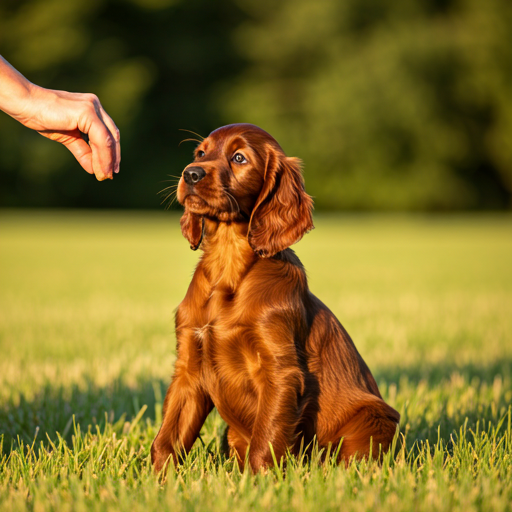
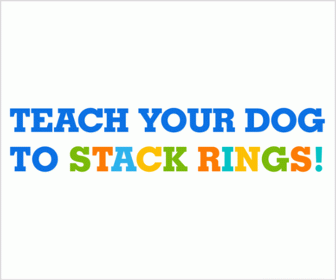



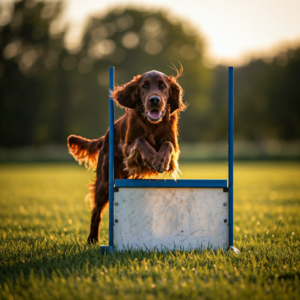
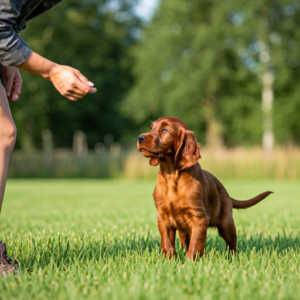
Pingback: Essential Tips for Training an Irish Setter Puppy Successfully - Setterpedia
Pingback: Mastering Positive Pup Training for a Happier, Well-Behaved Dog - Setterpedia
Pingback: How Big Do Irish Setters Get? A Complete Guide to Size and Growth - Setterpedia